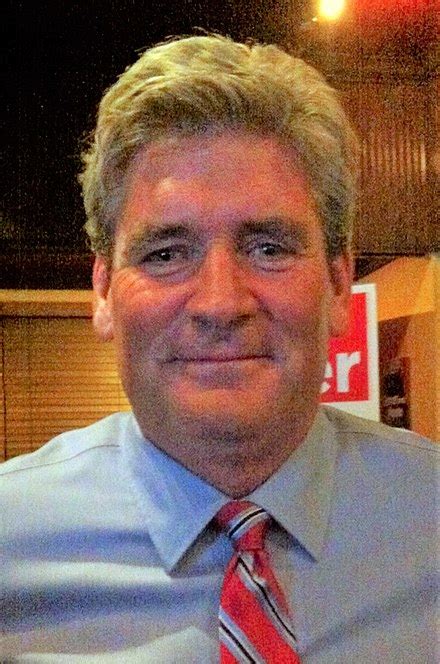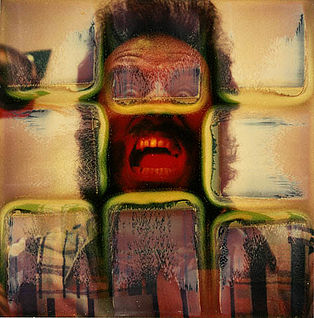A Quote by Michelle Alexander
Just providing information about how bad things are, or the statistics and data on incarceration by themselves, does lead to more depression and resignation and is not empowering. The information has to be presented in a way that's linked to the piece about encouraging students to think critically and creatively about how they might respond to injustice, and how young people have responded to injustice in the past.
Quote Topics
About
Bad
Bad Thing
Bad Things
Creatively
Critically
Data
Depression
Does
Empowering
Encouraging
How
In The Past
Incarceration
Information
Injustice
Just
Lead
Linked
Might
More
Past
People
Piece
Presented
Providing
Resignation
Respond
Statistics
Students
Themselves
Things
Think
Way
Young
Young People
Related Quotes
There is so much information that our ability to focus on any piece of it is interrupted by other information, so that we bathe in information but hardly absorb or analyse it. Data are interrupted by other data before we've thought about the first round, and contemplating three streams of data at once may be a way to think about none of them.
Perhaps generations of students of human evolution, including myself, have been flailing about in the dark; that our data base is too sparse, too slippery, for it to be able to mold our theories. Rather the theories are more statements about us and ideology than about the past. Paleontology reveals more about how humans view themselves than it does about how humans came about, but that is heresy.
Part of what it is to be scientifically-literate is how you think about information that's presented in front of you. I think that's the great challenge. You have people who believe they do know how to think about the information, but don't, and they're in the position of power and legislation. You can't base a society on non-objectively verifiable truth. Otherwise, it's a fantasy land and science is the pathway to those emerging truths that are hard-earned and that some have taken decades, if not centuries, to emerge from experiments all around the world.
What is wrong with encouraging students to put "how well they're doing" ahead of "what they're doing." An impressive and growing body of research suggests that this emphasis (1) undermines students' interest in learning, (2) makes failure seem overwhelming, (3) leads students to avoid challenging themselves, (4) reduces the quality of learning, and (5) invites students to think about how smart they are instead of how hard they tried.
There are students whose religious upbringing is going to make them feel uncomfortable in a class where certain kinds of secular ideas are presented. There are students whose ideas about history or sexuality are going to be similarly challenged to question, to affirm or to change those ideas. That doesn't mean they shouldn't be exposed to them; that's why they're at school. That's why they come to university: to be taught how to think well and critically about material that they're being presented with. But it's the teacher who is certified to teach them how to do that.
There's a bigger question again about how to do prevention. It's not simply about putting out the early warning. The early warning was put out on Abyei; everybody knew that this was coming. This was intentional, and still it happened. So this idea that we fail to stop these things because there's not awareness about them, or that we need better early warning information, I'm increasingly skeptical of. I think it's about how you move that information into the policy process.
In China, your freedom is always limited, but this limitation applies to almost everyone. If someone does injustice to you, though, you have to find a way to avenge yourself - even by illegal measures. In a sense, injustice is more personal. This idea has always been in Chinese history. I think we read about freedom of speech, or lack of freedom of speech, in China so often. But I don't think people here in America think about how justice, or the idea of justice, is so important in a Chinese setting. It's probably more important than freedom of speech in the Chinese mindset at this moment.
It's important to teach students about the reality of the system, that it is in fact the case that they are being targeted unfairly, that the rules have been set up in a way that authorize unfair treatment of them, and how difficult it is to challenge these laws in the courts. We need to teach them how our politics have changed in recent years, how there has been, in fact, a backlash. But we need to couple that information with stories of how people in the past have challenged these kinds of injustices, and the role that youth have played historically in those struggles.
The thing about education - and why I'm so passionate about the position and status of the university - is that it's supposed to teach citizens how to think better, how to think critically, how to tell truth from falsehood, how to make a judgment about when they're being lied to and duped and when they're not, how to evaluate scientific teaching. Losing that training of citizens is an extremely dangerous road to go down.
I'm looking back at what I did and how it works. In a sense I'm waiting to see how people will respond. I'm waiting to see how you respond, without asking me to tell you what I think about it, because it is your job to give me an idea of how you go about thinking about this work. And if it's too absurd then, you know, I'll kick you out!
Many more children observe attitudes, values and ways different from or in conflict with those of their families, social networks,and institutions. Yet today's young people are no more mature or capable of handling the increased conflicting and often stimulating information they receive than were young people of the past, who received the information and had more adult control of and advice about the information they did receive.




































